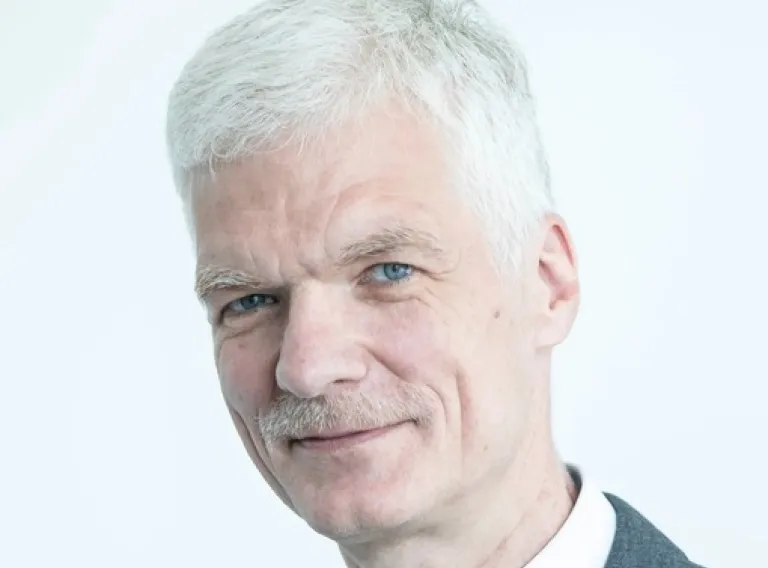Veröld - Hús Vigdísar
Andreas Schleicher is Director for Education and Skills at the Organisation for Economic Co-operation and Development (OECD) gives the talk From school as the world to the world as the school, Thursday June 12th at 15-16.30 in Veröld - hús Vigdísar.
As well as in live stream. Link here
Program
15:00 Opening - Kolbrún Þ. Pálsdóttir, Dean of the School of Education UI
15:10 - Katrín Jakobsdóttir, takes over the chair and introduces Andreas Schleicher.
15:15 - Andreas Schleicher: From school as the world to the world as the school
After Schleicher's talk, Katrín Jakobsdóttir will moderate discussions.
Abstract:
In today’s world, education is no longer just about teaching students something, but about helping them develop a reliable compass and the tools to navigate with confidence through an increasingly complex, volatile and uncertain world. Success in education today is about building curiosity – opening minds, it is about compassion –opening hearts, and it is about courage, mobilising our cognitive, social and emotional resources to take action. And those are also our best weapon against the biggest threats of our times – ignorance – the closed mind, hate – the closed heart, and fear – the enemy of agency.
The kind of things that are easy to teach and test have become easy to digitize and automate. We know how to educate second-class robots, people who are good at repeating what we tell them. In this age of accelerations and artificial intelligence, we need to think harder about what makes us human. The future is about pairing the artificial intelligence of computers with the cognitive, social and emotional skills and values of human beings.
The conventional approach in school is often to break problems down into manageable bits and pieces and then to teach students how to solve these bits and pieces. But modern societies create value by synthesising different fields of knowledge, making connections between ideas that previously seemed unrelated, connecting the dots where the next innovation will come from.
In the past, schools were technological islands, with technology often limited to supporting and conserving existing practices, and students outpacing schools in their adoption of technology. Now schools need to use the potential of technologies to liberate learning from past conventions and connect learners in new and powerful ways, with sources of knowledge, with innovative applications and with one another.
The past was also divided – with teachers and content divided by subjects and students separated by expectations of their future career prospects; with schools designed to keep students inside, and the rest of the world outside; with a lack of engagement with families and a reluctance to partner with other schools. The future needs to be integrated – with an emphasis on the inter-relation of subjects and the integration of students.
In today’s schools, students typically learn individually and at the end of the school year, we certify their individual achievements. But the more interdependent the world becomes, the more we need great collaborators and orchestrators. We can see during this pandemic how the well-being of countries depends increasingly on people’s capacity to take collective action. Schools need to help students learn to be autonomous in their thinking and develop an identity that is aware of the pluralism of modern living. This is important. At work, at home and in the community, people will need a broad understanding of how others live, in different cultures and traditions, and how others think, whether as scientists or as artists.
The presentation will look at how teachers, schools and school systems can rise to this challenge.
Bio:
Andreas Schleicher is Director for Education and Skills at the Organisation for Economic Co-operation and Development (OECD). He initiated and oversees the Programme for International Student Assessment (PISA) and other international instruments that have created a global platform for policy-makers, researchers and educators across nations and cultures to innovate and transform educational policies and practices.
He has worked for over 20 years with ministers and education leaders around the world to improve quality and equity in education. Former U.S. Secretary of Education Arne Duncan said that Schleicher “understands the global issues and challenges as well as or better than anyone I’ve met, and he tells me the truth” (The Atlantic, July 11). Former UK Secretary of State Michael Gove called Schleicher “the most important man in English education” – even though he is German and lives in France.
Before joining the OECD, he was Director for Analysis at the International Association for Educational Achievement (IEA). He studied Physics in Germany and received a degree in Mathematics and Statistics in Australia. He is the recipient of numerous honours and awards, including the “Theodor Heuss” prize, awarded in the name of the first president of the Federal Republic of Germany for “exemplary democratic engagement”. He holds an honorary Professorship at the University of Heidelberg.

Share
Buses 14, 1, 6, 3 and 12 stop at the University of Iceland in Vatnsmýri. Buses 11 and 15 also stop nearby. Let's travel in an ecological way!
